i carry your heart with me
-
Ships in 2 to 3 weeks
Details
Description
SKU: AN.AMP-0726
Composed by Z. Randall Stroope. Octavo. Alliance Music Publications #AMP 0726. Published by Alliance Music Publications (AN.AMP-0726).Stroope.
About the poet...
Edward Estlin (E.E.) Cummings was an American poet, painter, essayist and playwright. Author of over 900 poems, Cummings was born in Cambridge, Massachusetts, in 1894, son of Edward and Rebecca Cummings. His father was a professor of sociology and political science at Harvard University and was later killed in a car/train accident. His father had a profoundly positive impact on young Cummings, which led to the young boy's later focus on writing as a career. Cummings attended Harvard and received a Bachelor of Arts degree in 1915 and master's degree in English and Classical Studies in 1916. He spent a great deal of his life traveling, fulfilling speaking engagements and of course, writing &#ndash; much of which occurred on Joy Farm, his summer home in Silver Lake, Massachusetts. Though born into a Unitarian family, he moved to a more personal belief with age, as demonstrated by one of his most famous poems, i thank you God for most this amazing / day. Cummings died in 1962 at the age of 67.
About the poetry...
Cumming' poetry often deals with themes of love and nature, with frequent use of satire, sarcasm, and a poetic device called enjambment (or the running on of a sentence from one line to the next). He wrote traditional poetry, but in unorthodox ways, such as word choice, misspelled words, pacing, and a variety of other methods to communicate feelings to the reader. His use of punctuation (or lack thereof) is like a second alphabet, conveying emotions without using words. i carry your heart with me, like so many of Cummings' poems, is best served by reading straight through, and then experiencing the emotion that it brings, as opposed to line-by-line analysis.
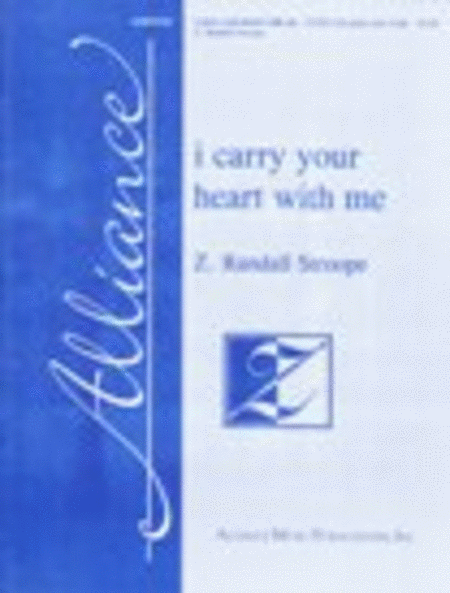
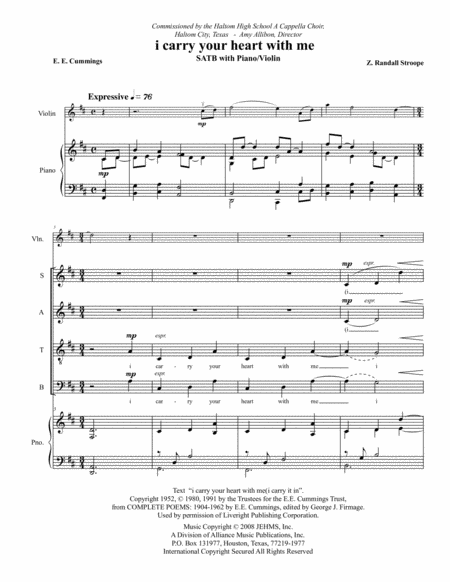
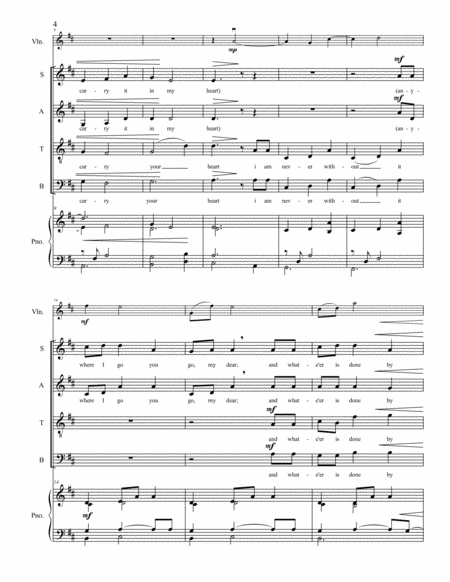
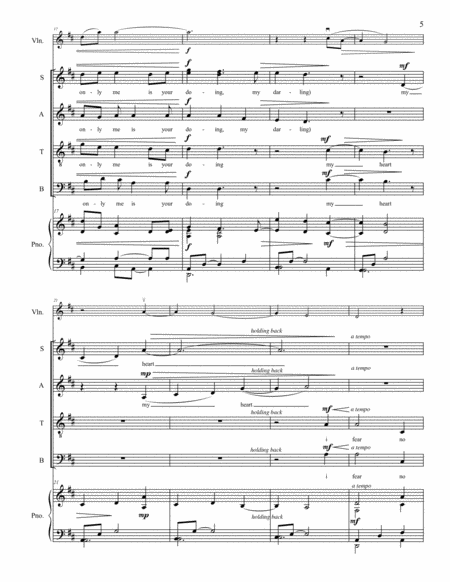
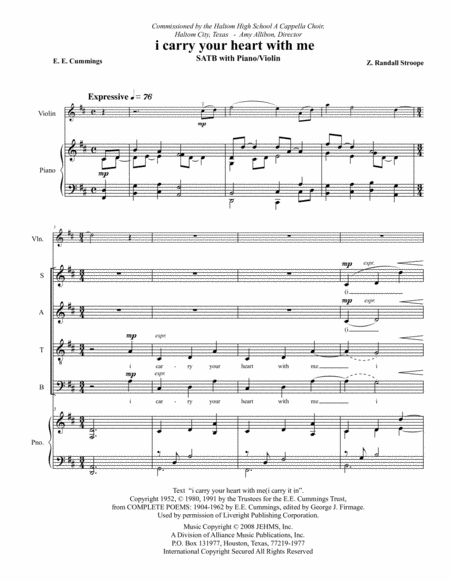
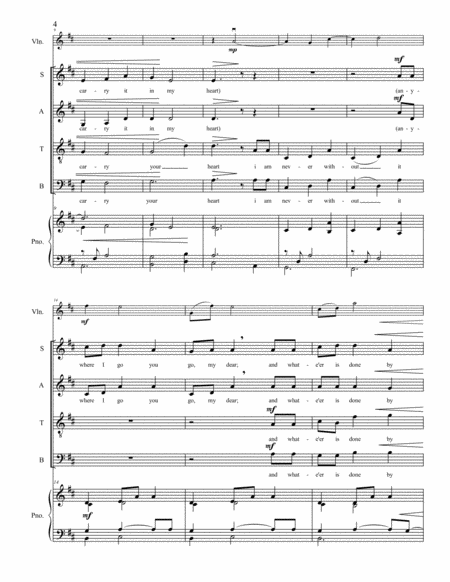
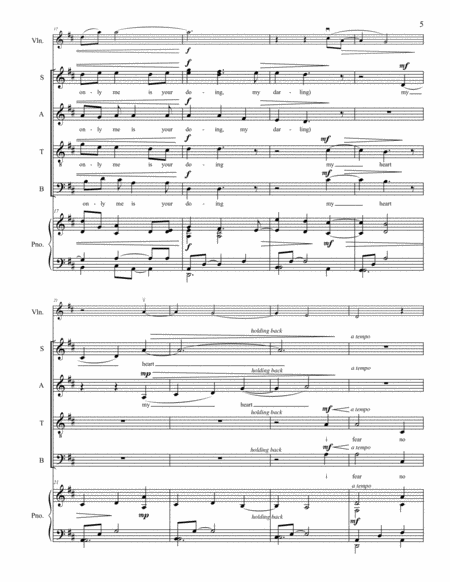
 Share
Share